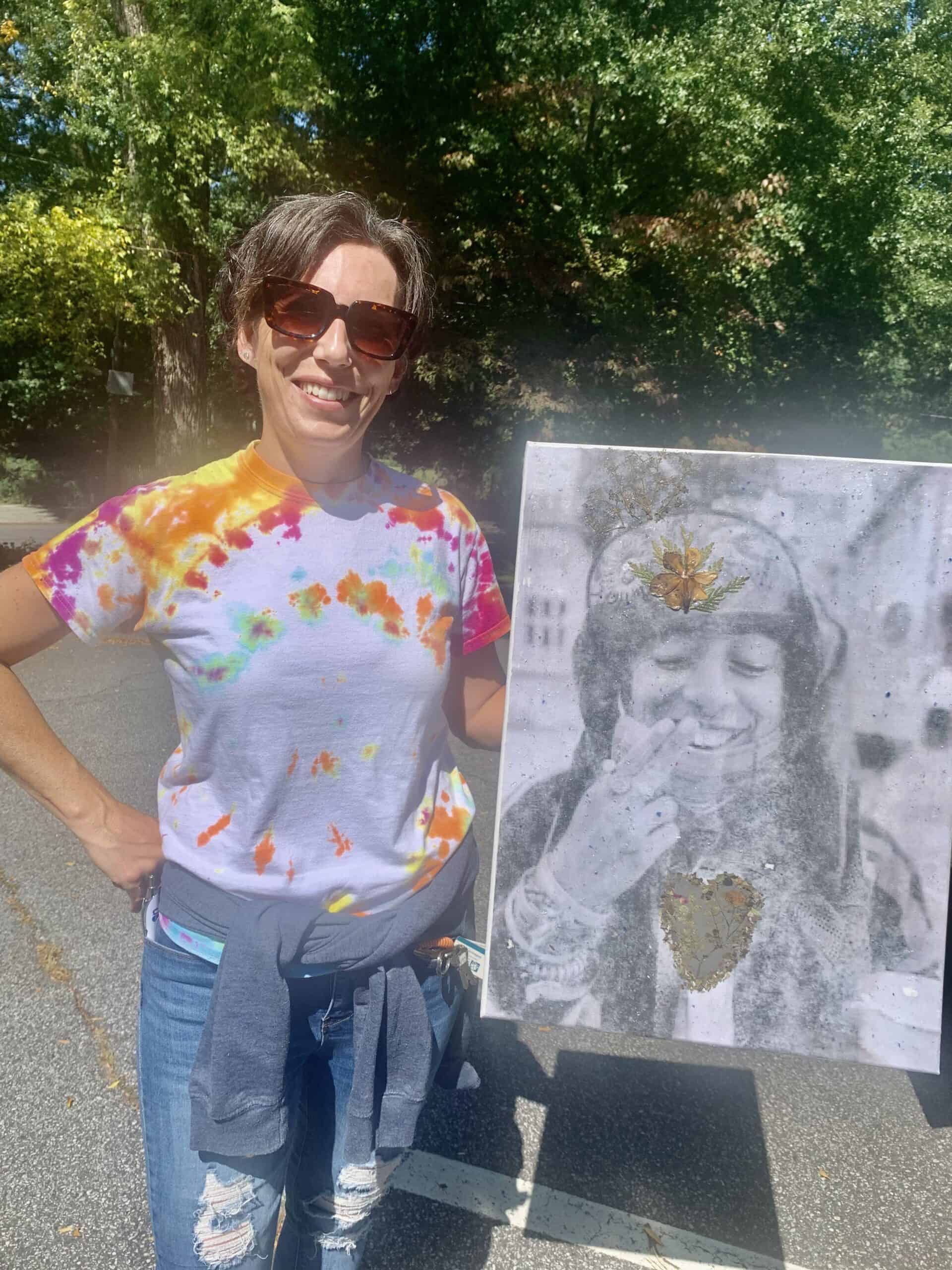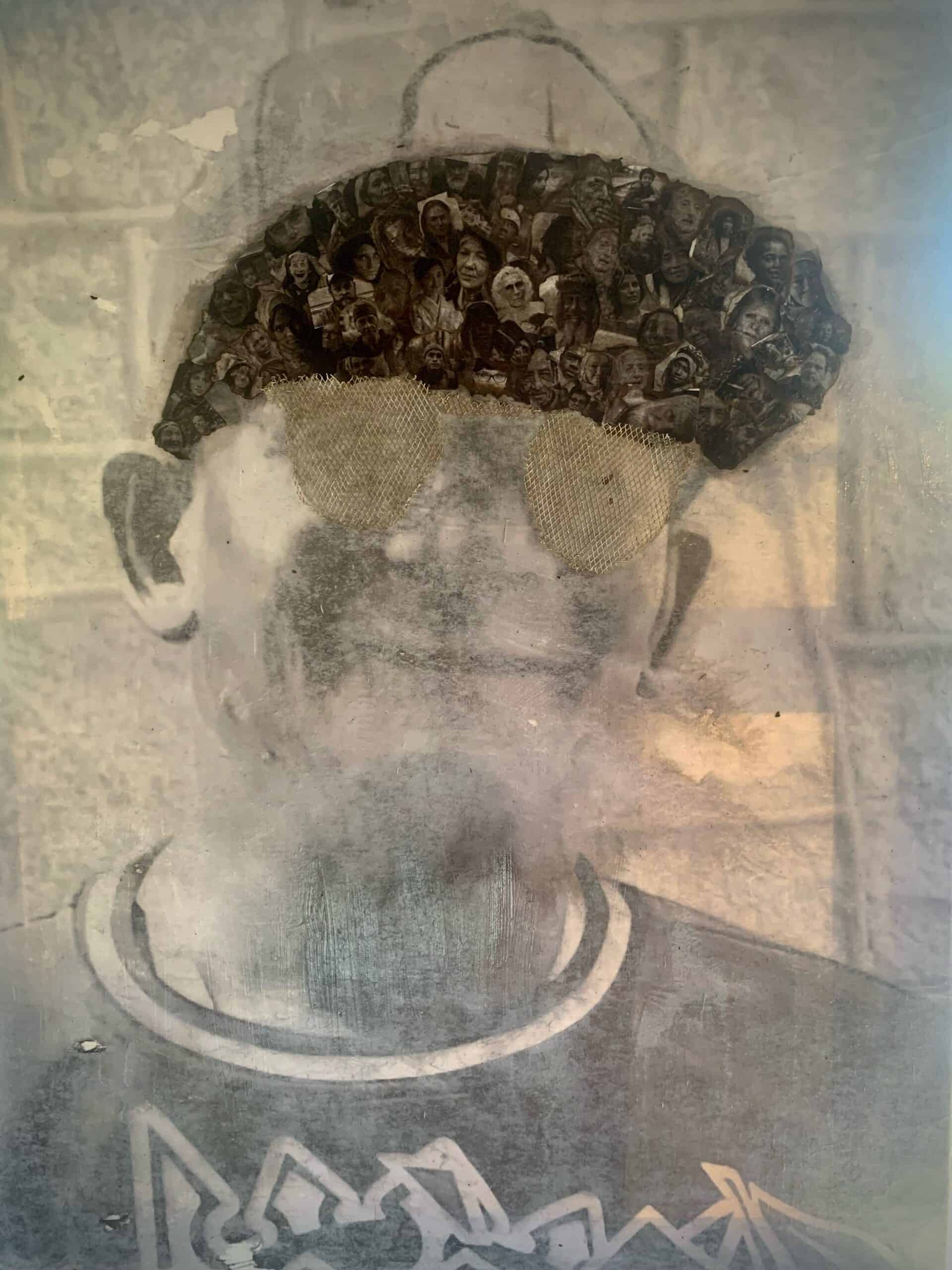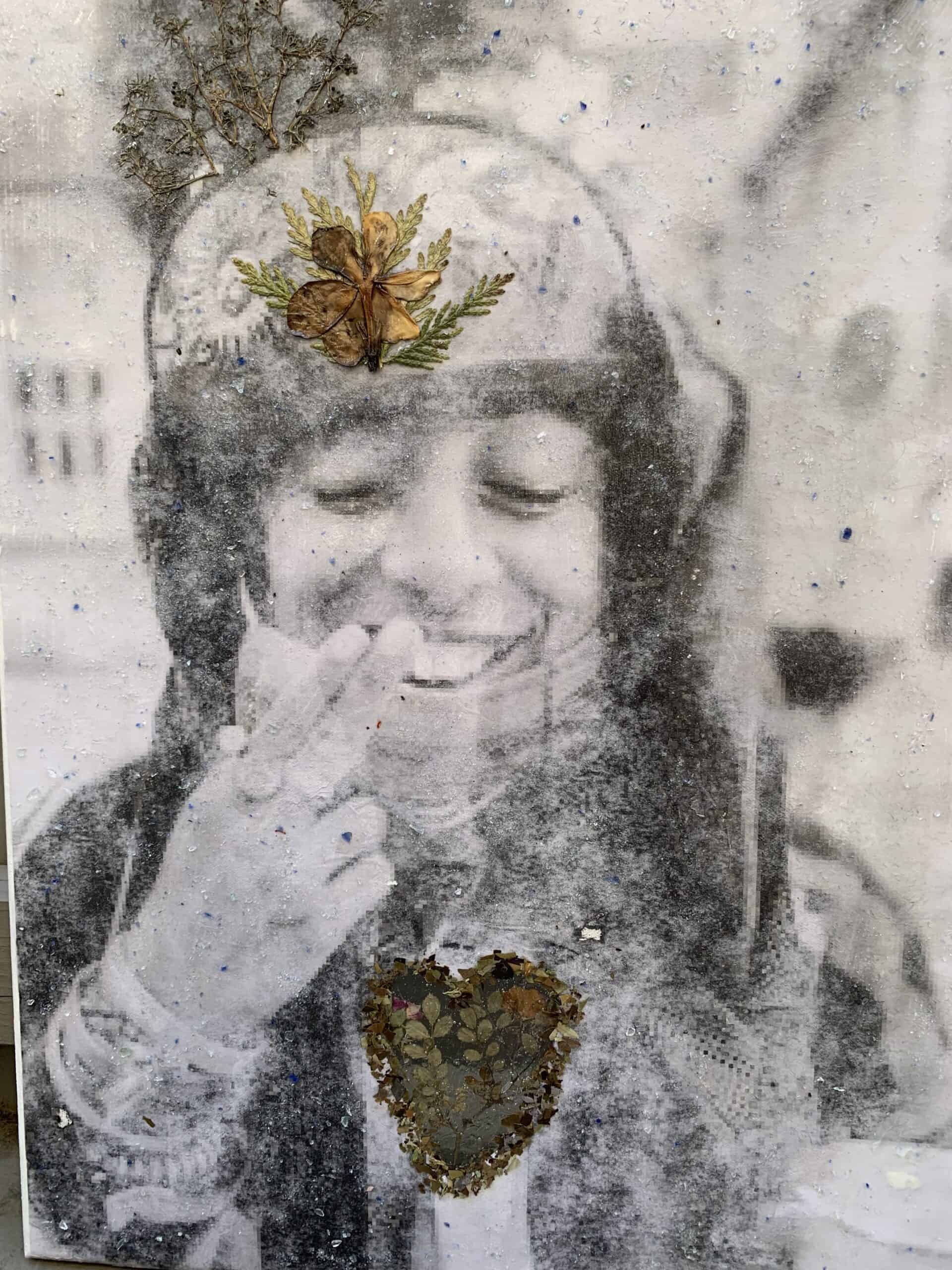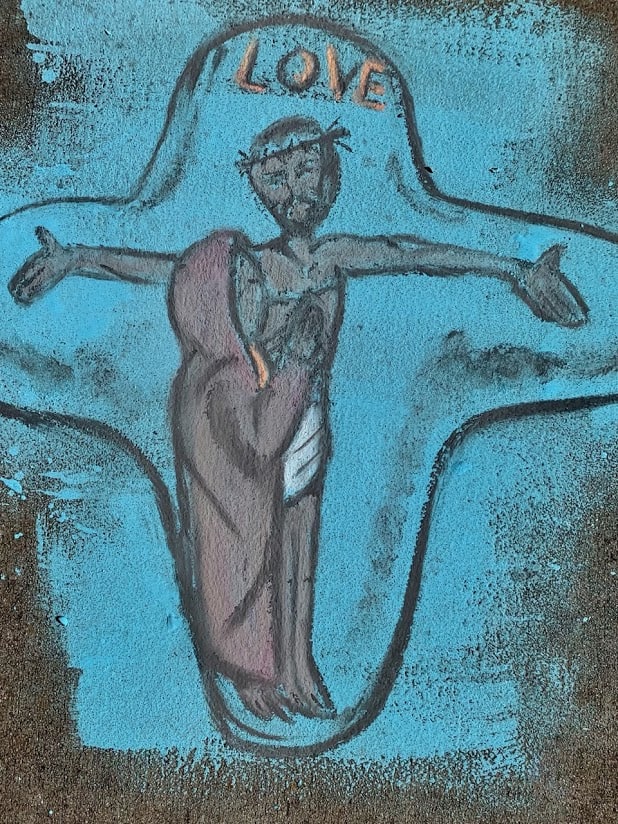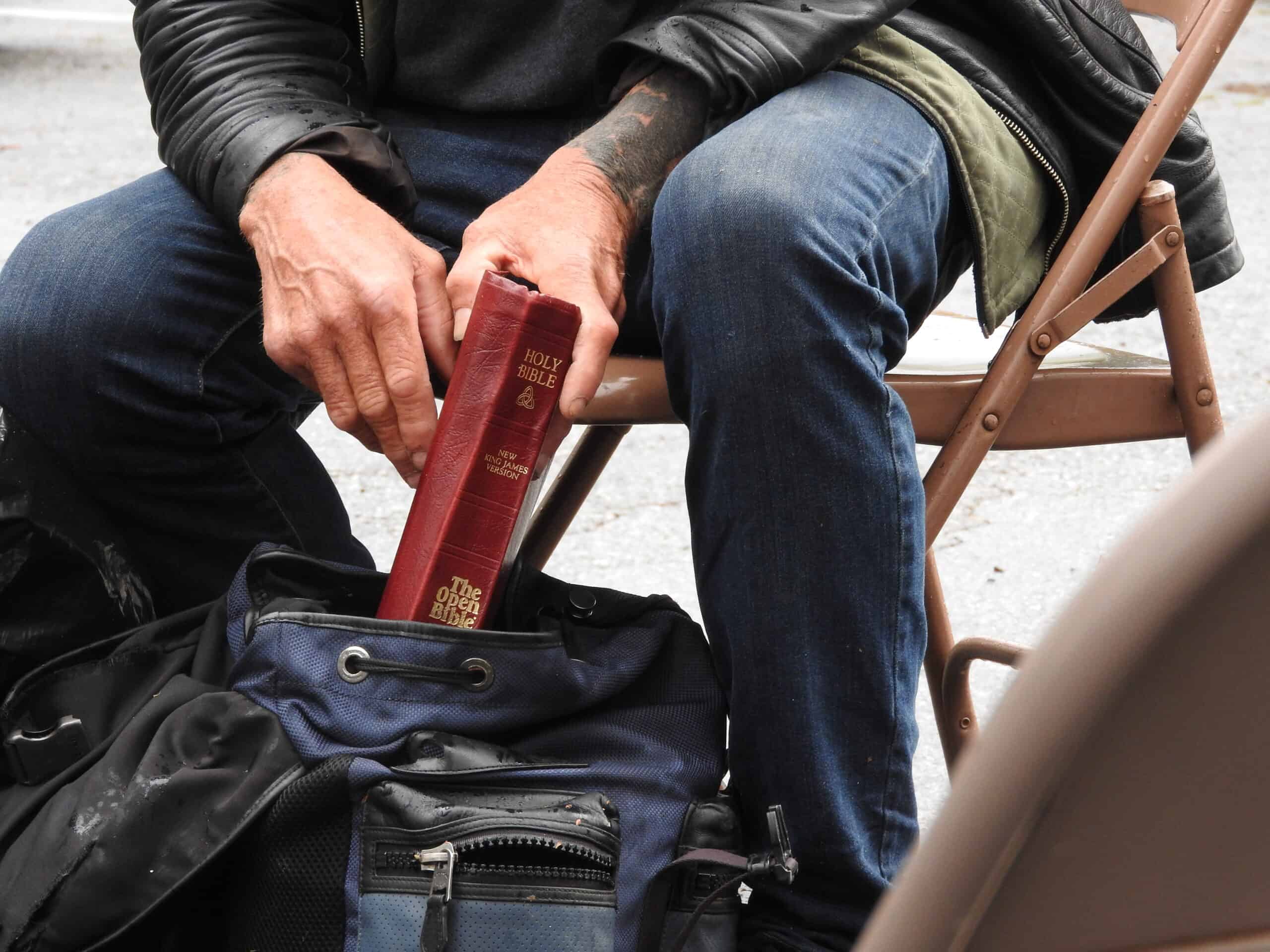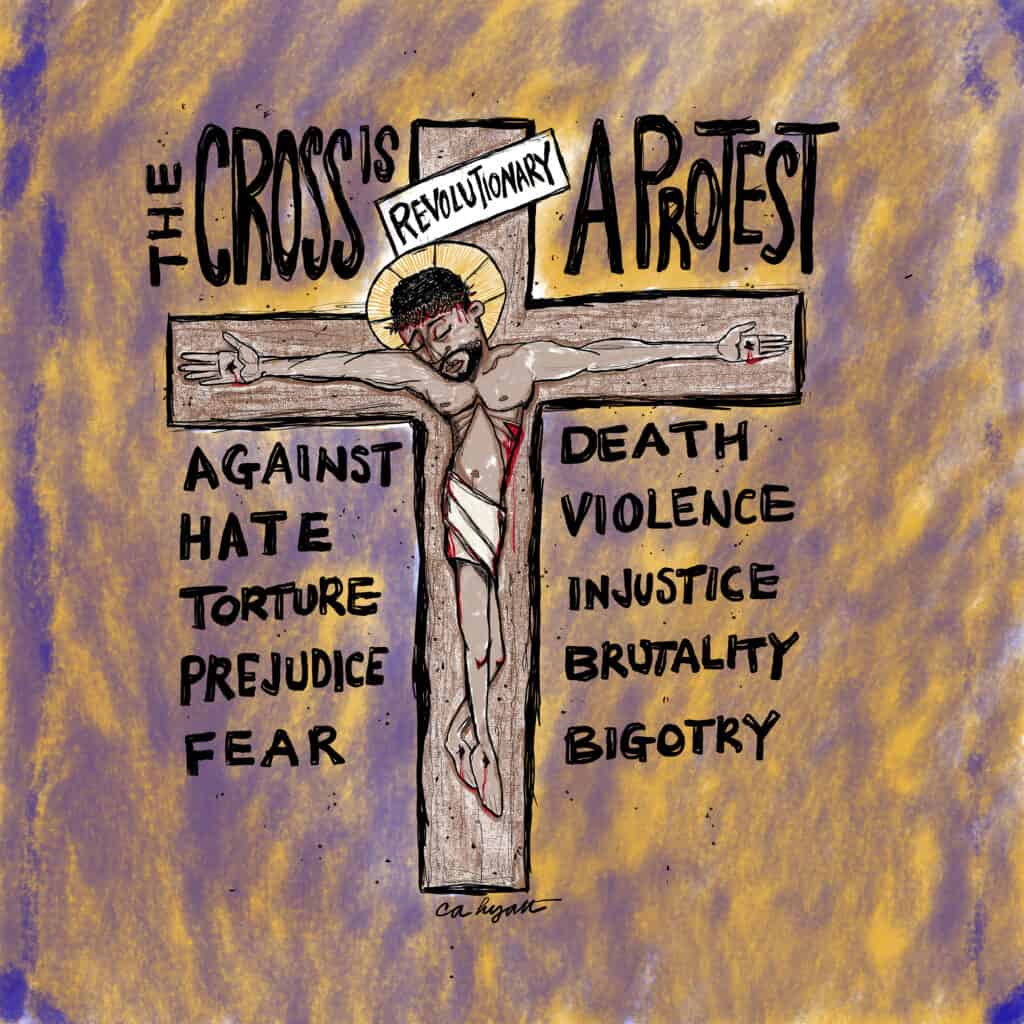Tracey Lynn uses art to honor the image of God in our community. With an introduction by Pastor Brittany Fiscus-van Rossum.
Throughout our sixteen years as a church, the Mercy community has always enjoyed creating art together. You have likely seen some of our members’ pieces in our Advent and Lenten devotionals, and if you haven’t, make sure not to miss them. Over the years we have had many art teachers and facilitators who faithfully encouraged the many creative artists our community boasts. You see, we believe that humans, created in the image of God, are creators too. Art is one way that we get to share our creative sides, work on projects together, enjoy one another’s company, and share our stories and perspectives. We believe all human beings have something to share and art can be an outlet for creativity and joy in community.
While we used to have a cozy little ‘art room’ decked out with the projects and pieces of different community members, when our community moved outdoors due to Covid-19 we stopped having regular art classes. Fortunately, last year our community was blessed with a talented and creative Columbia Theological Seminary intern, with a heart for art and pastoral care. Tracey Lynn helped us re-imagine a community ‘art hour’ outdoors safely, and now most Thursdays you can find a little group gathered around a pop-up table outdoors, making beautiful things together during Bible study. Tracey has faithfully nurtured, encouraged, and accompanied some of the artists in our community, while also imagining ways to use art for pastoral care and a tool for inclusion and sharing our stories. As a project for her theological education Tracey created and featured beautiful portraits of two of our community members. She utilized ethnographic practices to learn Herman’s and Ms. Kim’s stories and created beautifully and collaboratively-created pieces of these members for our community. Ms. Kim, Herman, and the entire community were delighted with the end results of Tracey’s project and are honored by all the ways she shares her time and talents with our community. Below, you can read Tracey’s thoughts on the creation of these pieces. We hope you enjoy them as much as we have! Behold, the image of God in Herman and Ms. Kim.
Tracey Lynn’s Artist Statement
The concept of my ethnographic project began with the idea that each of us is important and valuable. That we are all worthwhile and so are the stories we carry with us. Simply stated, ethnography is getting to know people while participating together in a community. After spending nine months with the Mercy community, I wondered about the stories of the people. I wanted to somehow convey the importance and value of their voices. I was honored by the trust and willingness Ms. Kim and Herman placed in my proposal to speak with each of them. The authentic interchange they shared with me created a life-giving source and image of humanity.
I ended each of my conversations with this question, “What do you believe it means to be made in the image of God?” I chose this question because I think it is a theological way of revealing, “You are beloved,” and “You matter.” Listening to them answer the question was striking. Each gave beautiful, poignant, and sound theological answers. Witnessing their body language, introspection and engagement with this question was the best part of our conversations.
When conceptualizing this project, including a visual art piece was something I thought could add dimension to the ethnographic process. As I listened to Herman and Ms. Kim share a little bit of themselves and respond to my question, there was a great deal of our interchange that was difficult to put into language. Ms. Kim is so genuine and so true to the earth and all that surrounds her. She exists in the here and now. We were sitting by a tree when I presented her with my question. She paused, looked around and centered herself on the beauty of the tree we sat next to. To listen and just be in the moment with Ms. Kim as she spoke was indescribable. The photo of Ms. Kim is adorned with dried flowers and leaves from the forest to capture the unity of her, the tree and earth. The glass heart showcases the beautiful window that Ms. Kim freely and innately opens from within which allows light and love to exquisitely pass through. Crushed sea glass is sprinkled about the entire canvas to represent the illumination that Ms. Kim’s being exudes. Herman shared so openly and honestly about his life. He spoke about his childhood all the way through his adulthood. His stories instigated laughter and tears, heartache and grace. Herman is courageous. Herman is humble. Herman perseveres. Herman is compassionate. Herman is a conqueror. Herman emphatically teaches that this life is a process. That we are all in process. When I asked Herman my question he instantly responded. He knew his answer. For him, to be made in the image of God is to look at surrounding humanity that exists outside the window of the bus or the person in his neighborhood that needs a few dollars and see himself. Herman’s portrait is embellished with wire mesh glasses painted gold. The juxtaposition of Herman’s story is represented through these glasses. They are rough and frayed around the edges and smooth in the center. There is visibility through the lenses but also obstruction. They are gold and distressed industrial metal. Herman’s life is precious like gold, it has been a rough road from the past to the present, and it is a constant process to see life with an unobstructed view. The faces of the people in the bill of Herman’s hat is a gesture toward the portrayal he envisions as what it means to be made in the image of God. The image of each face was singed with fire and when painted onto the canvas the ash from the burned edges created a sepia tone. Herman’s ability to see his past, present and future God – created self in others is beautiful and messy. In the end, my hope was to honor each of these beautiful individuals and engage in the practice of looking toward one another as God does.

